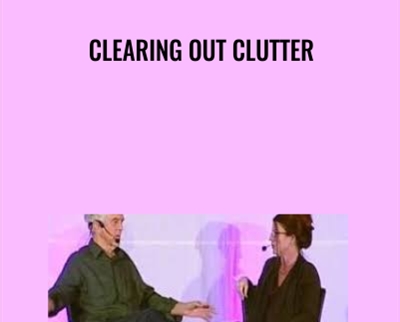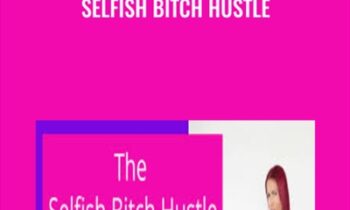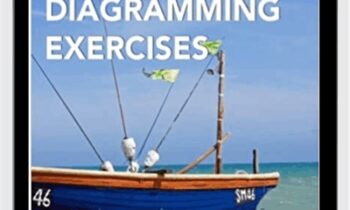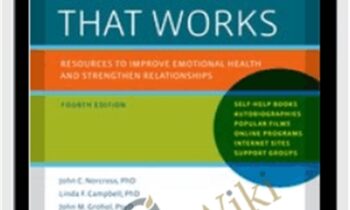Clearing Out Clutter – Steve Andreas
Clearing Out Clutter – Steve Andreas Download. When most people do this, they look through their closet full of clothes, the drawer full of socks, or the s…
Original price was: $31.00.$14.00Current price is: $14.00.
Unlock your potential with the Clearing Out Clutter – Steve Andreas course for only Original price was: $31.00.$14.00Current price is: $14.00. at WSOLib.com! Discover our vast library of over 60,000 downloadable digital courses across Personal Development. Get expert-guided, self-paced learning and save over 80% compared to retail prices. Transform your skills today!
Salepage link: At HERE. Archive:
From time to time we need to sort through an accumulation of things in order to make space for what we want to keep. However, many people have great difficulty doing this. Would you like to learn a ridiculously simple trick to make this easier?
When most people do this, they look through their closet full of clothes, the drawer full of socks, or the shelf full of books, and try to decide what they don’t want. While this seems very logical and straightforward, there are several reasons why it’s not the best way to accomplish the task.
Imagine that you went to a grocery store to buy some food, and you were focused on what you don’t want. Pause for a moment to imagine actually doing this in your mind, to find out what this way of shopping would be like for you. . . .
Doesn’t that seem a little backward? Now imagine shopping the way you usually do it, by focusing on what you do want. . . .
Whether you have a list of things that you have already decided that you want, or whether you look around to see what appeals to you (or both), focusing on what you do want is much simpler and more direct.
There are probably only a few things that you do want, and an immense number of things that you don’t want. If you were focused on eliminating what you don’t want, it would take you much longer, because there is so much more of it that you would have to process.
You have only a certain amount of attention; if you are focused on what you don’t want, you have much less attention for what you do want, and you might even lose track of it altogether, which is what happens in paranoia.
Perhaps most important, if you are focused on what you don’t want, you will be having the feelings that go along with thinking of those things. Those feelings are likely to be much less pleasant than the ones you have when you think of what you do want. Try this in you imagination. First think of a food that you don’t want, . . . and then think of a food that you do want. . . .
Which feels better? If you think of what you do want, you will feel better, and you are likely to keep on shopping. But if you are having the feelings that go with thinking of all those things that you don’t want, you are likely to stop soon, so that you can feel better!
So far I have written about what you do want and what you don’t want. But there is another category of stuff that is even larger than both of these put together; stuff that you don’t much care about one way or another—“Mister In-Between.” When you focus your attention on what you do want, all this is ignored along with all the stuff that you don’t want.
To summarize, if you are deciding what to buy in a store, it makes a lot more sense to focus on what you do want than what you don’t want. It is also much simpler to do, because it is harder for us to process negations like “don’t” (“do not”).
Now let’s go back to the task of sorting through an accumulation to decide what you want to keep. All the factors I have discussed above are equally true when you want to sort through stuff. If you focus on what you don’t want, it will be more difficult, less direct, it will take longer, and it feels unpleasant, so you will probably soon give up and do something else—perhaps berating yourself for your sloppiness and “lack of willpower” or “lack of persistence.”
How can we apply the way that we naturally and efficiently acquire stuff to the task of discarding stuff?
It’s absurdly simple: empty out that closet, drawer, or bookshelf completely and put everything that was in it somewhere else. Now imagine that this is stuff in a store, and you can select what you want from it—absolutely free! Now look through it to decide what you want to keep, and discard the rest of it.
There is an additional advantage to this way of sorting through stuff in order to simplify and streamline your surroundings. If you were successful in doing what most people do—focusing on what you don’t want, and discarding that, you would still have all the stuff that is meaningless to you—“Mister In-Between.” But by selecting what you do want from that pile of stuff, all the “Mister In-Between” stuff remains in the pile to be discarded.
If you are someone who likes to keep “in between” stuff around for a while in case it might become useful, put it in a box, and date it. If you haven’t looked at it after a given length of time—perhaps six months or a year—look through it quickly to be sure there is nothing you want to keep, and then dispose of it.
Another little trick I use is to think of who would be happy to have the stuff that I’m discarding. Even though I don’t have a use for it, it might be important to someone else; the thought that someone else might appreciate it gives me additional pleasure at the thought of passing it on to someone else, making it even easier to let go of it.
This is only one specific application of the importance of focusing your attention on positive outcomes—what you do want, rather than what you don’t want—a key element of NLP, and of living a life that works for you.
Do you have other strategies or “tricks” that make it easier for you to clean stuff out? If so, I welcome you to add them to this discussion.
Secure your future with the Clearing Out Clutter – Steve Andreas course at WSOLib.com! Gain lifetime access to expertly curated content, empowering your career and personal development.
- Lifetime Access: Enjoy unlimited access to your digital courses.
- Huge Savings: Prices are consistently up to 80% lower than original sales pages.
- Secure Transactions: Shop with confidence using our trusted payment methods.
- Actionable Knowledge: Acquire real-world skills from diverse topics.
- Instant Delivery: Start learning immediately after purchase.
- Device Flexibility: Access your courses on desktop, mobile, or tablet.
Begin your learning journey with WSOLib.com!
Specification: Clearing Out Clutter – Steve Andreas
|
User Reviews
Only logged in customers who have purchased this product may leave a review.





There are no reviews yet.